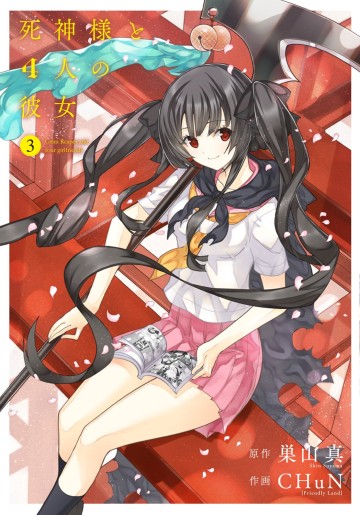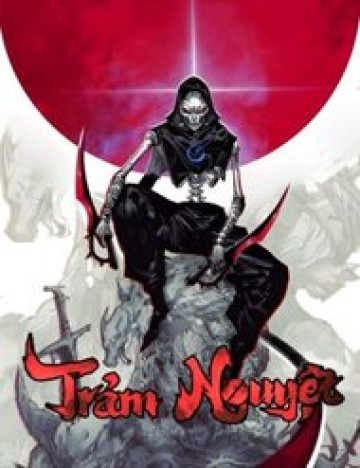Xuan Yuan Sword Luminary: A Missed Opportunity for an Epic Fantasy

And then the Taibai Empire attacked!
The Taibai Empire has extended its dominion across the land, utilizing their formidable Constructs, giant robots, to conquer everything in their path. Countless lives have been shattered by the Empire, including Yin and Ning, traveling entertainers whose village was decimated years ago, leaving Ning without arms. During their journey, Yin stumbles upon a mysterious bamboo writing strip that illuminates and releases a girl. Meanwhile, Zhao, a childhood friend of Yin and Ning, has been enslaved by the Empire. But after establishing a connection with the Empress and showcasing his talents in Construct building, Zhao rapidly ascends the ranks. Unbeknownst to each other, these two pairs of friends are destined to face tragedy and despair when their paths finally cross.
Is it wrong to find enjoyment in an anime series solely for its concepts rather than its execution? I sincerely hope not because that’s precisely what happened with “Xuan Yuan Sword Luminary.” I must admit, the series is far from perfect; it suffers from poor writing, clichés aplenty, and animation that can only be described as lacking. However, despite these flaws, I found myself engrossed in the show. I was captivated by the characters—or rather, the potential within the characters (it’s challenging to like characters when they deliver clunky, lifeless dialogue). The idea of childhood friends finding themselves on opposing sides of an evil empire, one ascending the ranks while the other joins the rebellion and grapples with the consequences of killing for a cause, has immense dramatic potential. Additionally, the gradual descent into madness and despair of a little sister adds further depth to the storyline. It’s a feast of dramatic material brimming with potential, all of which is squandered due to the inherent ineptitude that plagues this series.
I feel somewhat guilty for being so critical of this series. I’m sure the creators poured their hearts and souls into its making, but regardless of effort, the result remains subpar. It has been an odd viewing experience, to say the least. Though I witnessed a train wreck unfolding in slow motion across thirteen episodes, my frustration towards the series never boiled over—an unusual reaction for me. Typically, when I see a series squander its potential, I become exasperated to the point of frothing at the mouth by the time I reach the end. Yet, with “Xuan Yuan Sword Luminary,” I found myself genuinely enjoying the show. Admittedly, the animation is laughable, but somewhere, someone is making an effort. Whether it’s the voice actors or the creative minds behind the series, someone is giving it their all—unfortunately, the rest of the show falls short.
Indeed, many story elements within the series have been done before, and better, elsewhere. Nevertheless, I can’t shake the feeling that with a more compelling script and a higher animation budget, this series could have become an exceptional epic fantasy. Alas, certain structural issues plague the narrative, primarily revolving around character motivation. Let’s discuss Zhao first. I appreciate the concept of following a former slave as he rises through the ranks of the very empire that enslaved him. His bond with the Empress provides excellent opportunities for drama and character development. However, the series fails to provide an adequate explanation as to why he willingly builds Constructs that annihilated his home. At the beginning, there is no explanation whatsoever, leaving viewers to assume that Zhao is either impossibly naive or suffering from memory loss. When an explanation is finally offered, it is far from satisfying. Zhao claims that he has grown accustomed to power and desires more of it to protect his loved ones. However, there is no evidence of his thought process leading up to this revelation. Character development should not emerge out of thin air.
Now, let’s turn our attention to Yin and Ning. I can’t help but feel sorry for Yin. Stories of reluctant heroes grappling with the consequences of killing have been explored before, and it’s a compelling character arc—especially when the protagonists are young and embroiled in warfare. Unfortunately, Yin’s struggle becomes her sole defining trait, one that gets abandoned halfway through the series. The rebels, in general, are the most lackluster aspect of the anime. I would much rather delve into the intrigue surrounding Zhao and the Empress than follow a group of individuals devoid of personality, distinguished solely by their color-coded superpowers. Yin’s character development remains stagnant throughout the series, making her come across as whiny, despite understanding her circumstances. Furthermore, her sword and the bamboo scroll receive a vague explanation, barely scratching the surface of the series’ mythos.
Lastly, we have Ning, the little sister character who surprisingly undergoes the most significant development. She transforms from a bloodthirsty rebel to an unhinged killing machine (or perhaps she doesn’t change all that much considering the circumstances). Upon reflection, the principal issue with the characters in this series is that it feels like a series of events happening to them, orchestrated by the plot, rather than a natural evolution stemming from their core motivations. A better-written script would have elevated the series tremendously, enabling viewers to genuinely connect with the characters and fully explore their inner turmoil as they each descend into chaos. The potential is undoubtedly present, but I have never yearned for a series to receive a do-over more than “Xuan Yuan Sword Luminary.”
In conclusion, “Xuan Yuan Sword Luminary” is a series brimming with potential. With a stronger script and improved animation, it could have become a remarkable epic fantasy. All the necessary ingredients, from the initial setup to the character-driven drama, were in place. Unfortunately, the series falls short of its aspirations. The animation is laughable, the script is clunky and lifeless, and the characters merely serve as puppets for the plot. There isn’t much I can recommend about this series, except for the version that we could have had. However, that alone is not a reason to invest your time in watching it. Skip it.

Chris Joynson, aka the Infallible Fish, is a writer, blogger, and animation enthusiast based in Sheffield.
Note: The original article’s links and contact information have been omitted to adhere to the brand focus guidelines for Fecomic.







